Best Turkish Food that will Tantalize Your Taste Buds
Turkey, a country at the crossroads of Europe and Asia, boasts a culinary heritage that is as diverse as its history.
Rooted in centuries of cultural exchange and influenced by various civilizations, Turkish cuisine stands out as a vibrant tapestry of flavors and traditions. In exploring the realm of the best Turkish food, we embark on a journey through the rich history and cultural significance that have shaped this extraordinary culinary landscape.
Turkish cuisine, often hailed as one of the world's best, reflects the country's geographical diversity, blending flavors from the Mediterranean, Middle East, and Central Asia. Beyond being a source of sustenance, food plays a pivotal role in Turkish culture. It is a symbol of hospitality, a cornerstone of social gatherings, and a testament to the interconnectedness of communities. As we delve into the best Turkish food, we will uncover the stories and traditions woven into every dish, showcasing the deep-rooted importance of food in the Turkish way of life.
Turkish Appetizers (Mezes)
Embarking on a culinary exploration of famous Turkish food would be incomplete without savoring the delectable array of mezes, the tantalizing appetizers that grace tables across Turkey.
Hummus
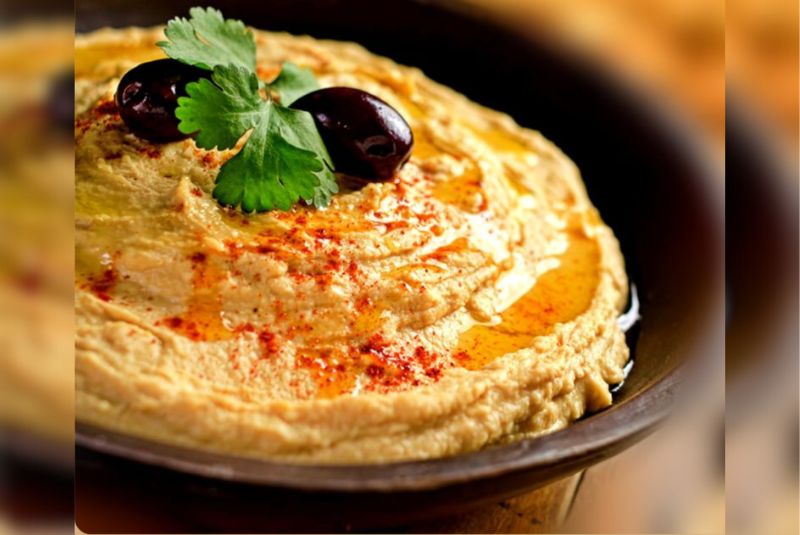
Widely known as a Middle Eastern favorite, hummus has found a cherished place in Turkish meze spreads. This velvety concoction of chickpeas, tahini, garlic, and olive oil offers a creamy texture and a subtle interplay of flavors. Often garnished with a drizzle of olive oil and a sprinkle of paprika, hummus is a ubiquitous meze that transcends cultural boundaries, reflecting the influence of the broader region on Turkish cuisine.
Baba Ganoush
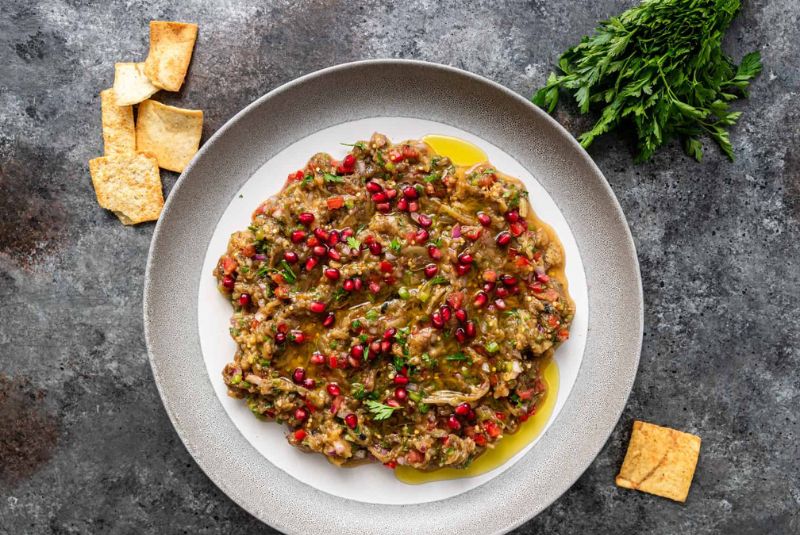
A smoky and savory delight, baba ganoush is a meze crafted from roasted eggplants, tahini, garlic, and lemon juice. The process of charring the eggplants imparts a distinct smokiness to the dish, creating a flavor profile that is both complex and satisfying. Served with warm, freshly baked bread, baba ganoush exemplifies the art of blending simple ingredients into a culinary masterpiece.
Muhammara
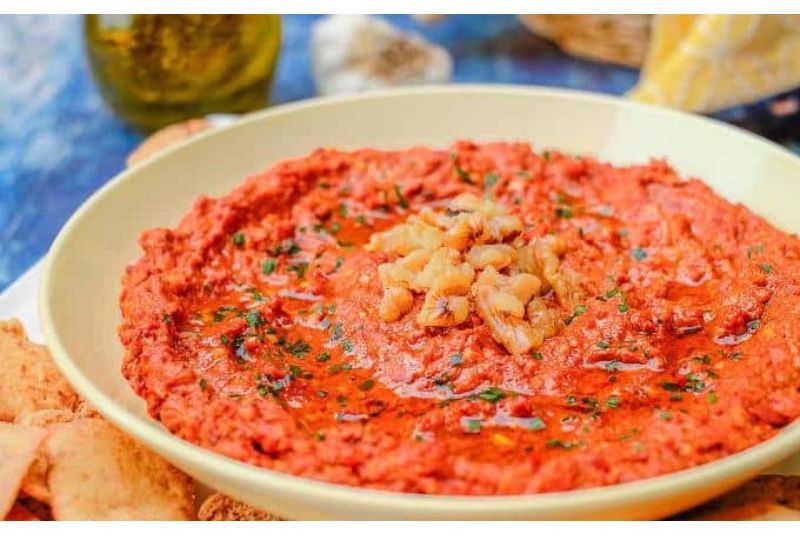
Originating from the southeastern region of Turkey, muhammara is a meze that captivates the palate with its rich and bold flavors. Roasted red peppers and walnuts form the base of this spread, offering a delightful combination of sweetness and spice. Muhammara's vibrant red color and nuanced taste make it a standout on any meze platter, providing a glimpse into the regional diversity that defines Turkish cuisine.
Turkish Ezme (Spicy Tomato Dip)
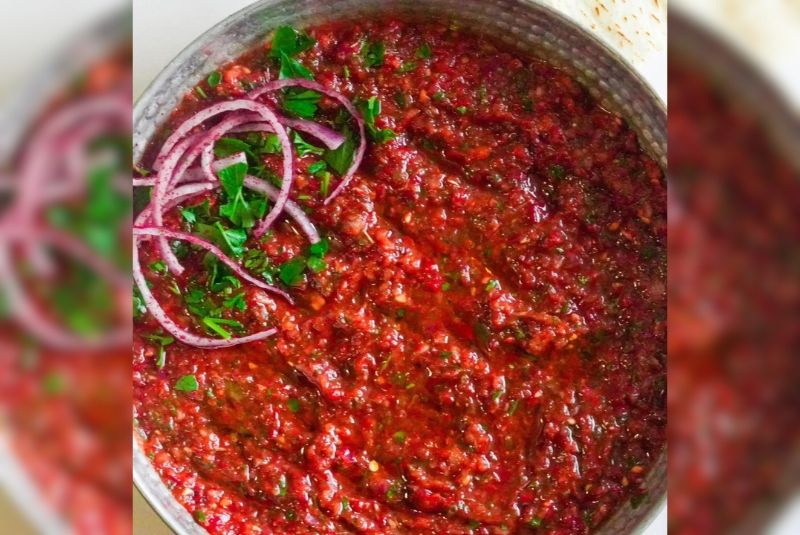
A symphony of freshness and spice, Turkish Ezme is a spicy tomato dip that adds a lively kick to the meze experience. Finely chopped tomatoes, peppers, onions, and herbs come together to create a burst of flavors that awaken the senses. Often enjoyed with crusty bread or as an accompaniment to grilled meats, Turkish Ezme embodies the vibrancy and boldness that characterize the famous Turkish food landscape.
Best Places to Try Mezes
When seeking the best places to indulge in these mezes, one must venture beyond the typical tourist spots. Istanbul's Grand Bazaar, with its labyrinthine alleys, offers a treasure trove of meyhane-style eateries where locals and visitors alike converge to relish these culinary delights. For a more coastal experience, the markets of Izmir boast seafood-focused meze selections that highlight the region's maritime influence. These culinary excursions not only showcase the diversity of mezes but also underscore the communal spirit and hospitality that make enjoying famous Turkish food a truly immersive experience.
Turkish Main Courses
In our quest to uncover the tapestry of the most popular Turkish food, we now turn our attention to the heart of Turkish cuisine – the main courses that reflect the artistry and diversity of this culinary tradition.
Kebabs
Adana Kebab
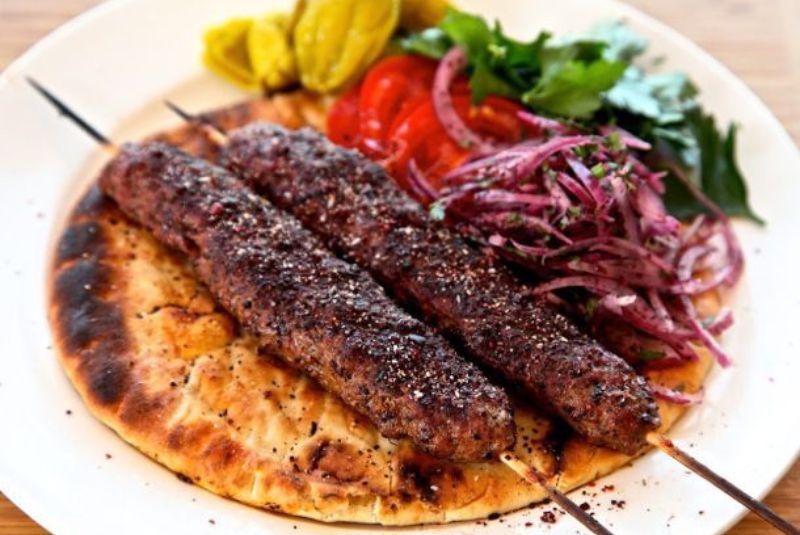
Hailing from the city of Adana in southern Turkey, Adana Kebab is a fiery delight that embodies the essence of Turkish grilling. Ground meat, typically lamb or a lamb-beef blend, is seasoned with red pepper flakes and expertly grilled on skewers. Served with lavash bread and a side of fresh vegetables, Adana Kebab is a flavorful journey into the world of Turkish kebabs.
Shish Kebab
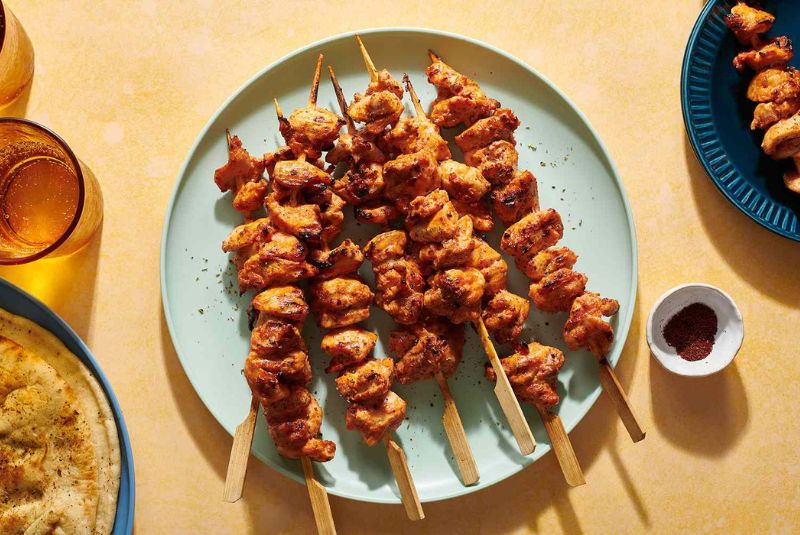
A timeless classic, Shish Kebab is a culinary icon that transcends borders. Chunks of marinated meat, often lamb or chicken, are skewered and grilled to perfection. The simplicity of its preparation allows the quality of the meat and the harmony of spices to shine through, creating a dish that has become a symbol of popular Turkish food worldwide.
Iskender Kebab
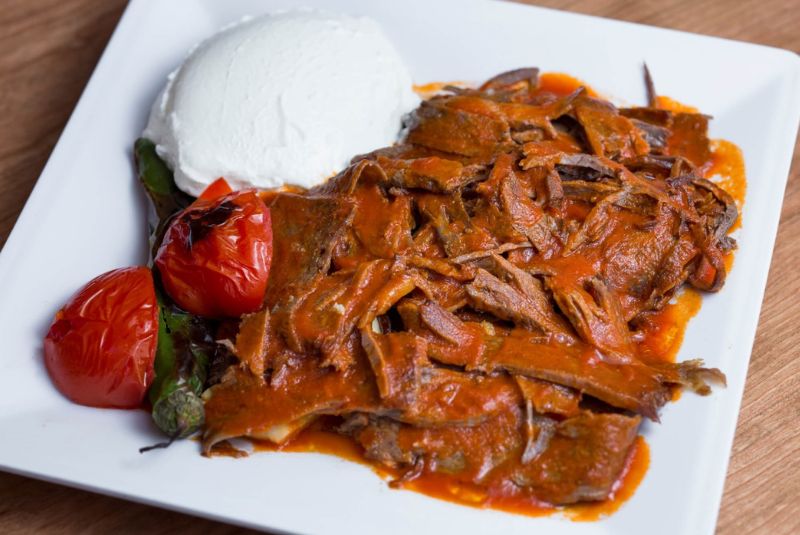
Hailing from Bursa, Iskender Kebab is a culinary masterpiece that layers thinly sliced döner kebab over pieces of pitta bread. The ensemble is then generously drizzled with tomato sauce and melted butter, creating a harmonious blend of textures and flavors. This comforting dish is a testament to the creativity and innovation embedded in Turkish culinary traditions.
Other Main Dishes
Koftes (Turkish Meatballs)
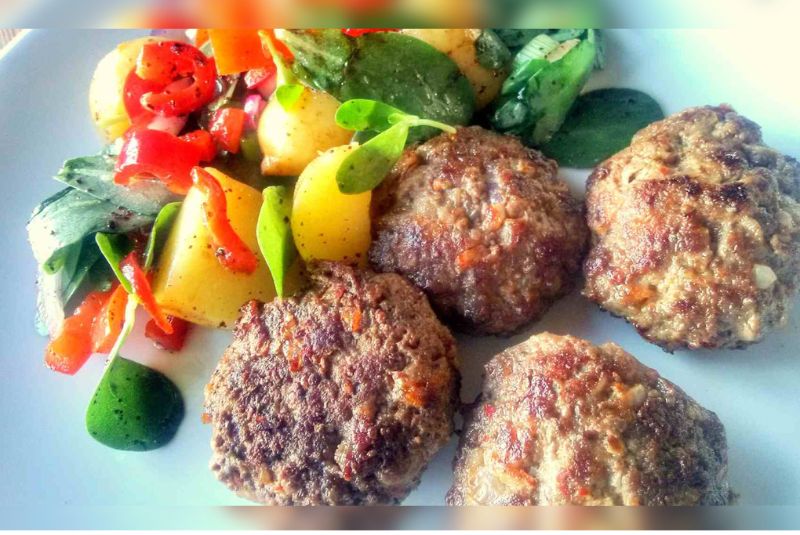
Koftes, or Turkish meatballs, are a beloved comfort food found across the country. Ground meat, often a mix of beef and lamb, is seasoned with spices and shaped into small patties. Grilled to perfection, koftes are served with accompaniments like rice, yogurt, and fresh herbs, showcasing the versatility and regional variations of this popular Turkish dish.
Hunkar Begendi (Smoked Eggplant with Meat Stew)
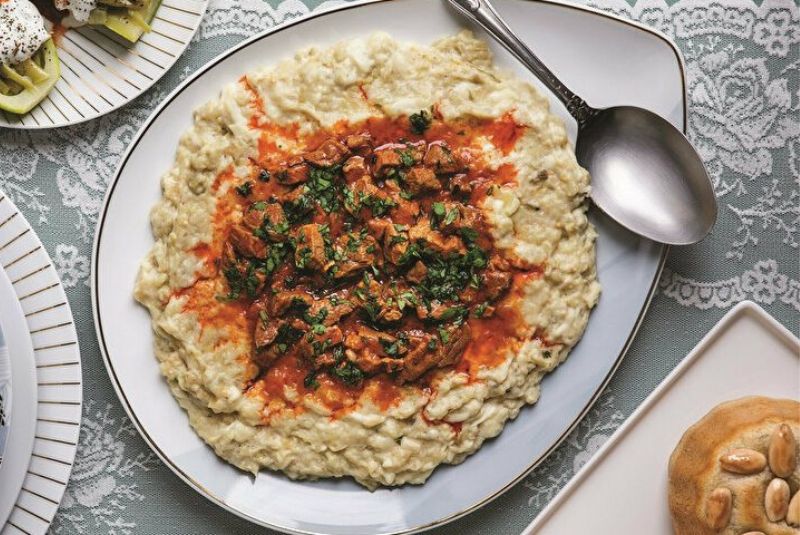
A royal dish with origins in Ottoman cuisine, Hunkar Begendi combines smoky roasted eggplant with a savory meat stew. The result is a velvety, flavorful puree paired with tender chunks of meat. This dish, whose name translates to "Sultan's Delight," is a testament to the opulent flavors that define popular Turkish food.
Lahmacun (Turkish Pizza)
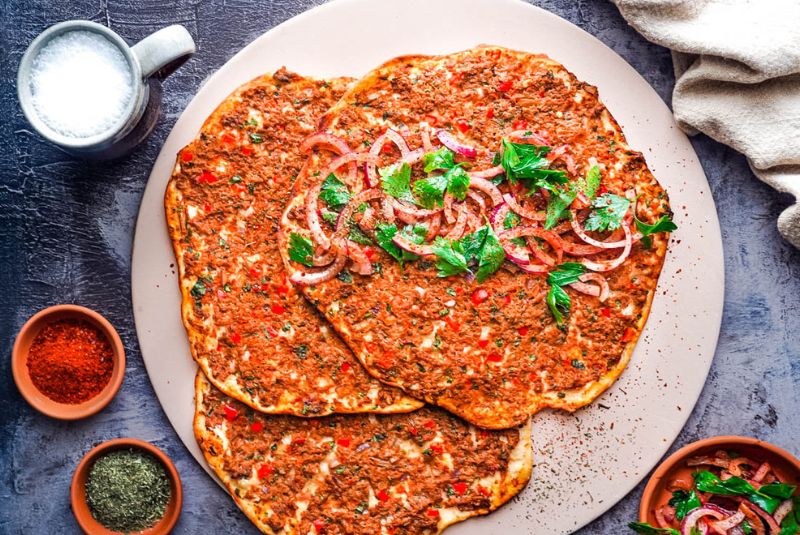
Dubbed as Turkish pizza, Lahmacun is a thin, crispy dough topped with a flavorful mixture of minced meat, tomatoes, peppers, and spices. Often garnished with fresh herbs and a squeeze of lemon, Lahmacun offers a delightful blend of textures and tastes, showcasing the influence of Anatolian cuisine.
Highlighting regional specialties adds another layer of complexity to the vast landscape of Turkish cuisine. From the aromatic kebabs of Gaziantep to the seafood-centric dishes of the Aegean coast, regional variations contribute to the rich tapestry of popular Turkish food, making each dining experience a unique and culturally enriching journey.
Turkish Breakfast (Kahvaltı)
As we immerse ourselves in the culinary tapestry of Turkey, a breakfast ritual emerges as a cornerstone of the nation's gastronomic identity—the renowned Turkish breakfast, or "Kahvaltı." It is a morning feast that captures the essence of the best food in Turkey, celebrating a vibrant array of flavors and fostering a sense of communal connection.
Simit (Turkish Bagel)

The Turkish breakfast experience often begins with the delightful crunch of Simit, a circular bread encrusted with sesame seeds, reminiscent of a Turkish bagel. This ubiquitous treat is enjoyed with a variety of accompaniments, from sweet jams to savory cheeses, embodying the diversity that characterizes the best food in Turkey.
Menemen (Scrambled Eggs with Tomatoes and Peppers)
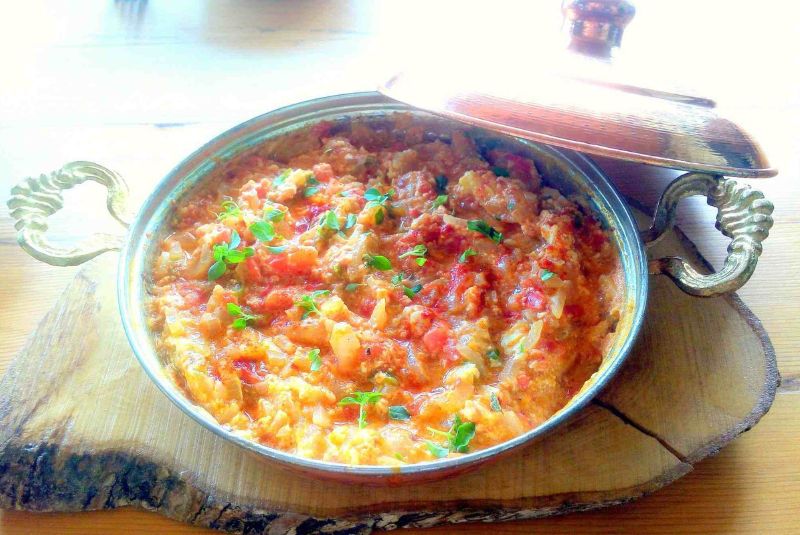
A warm and hearty delight, Menemen graces Turkish breakfast tables with its flavorful blend of scrambled eggs, tomatoes, and green peppers. Infused with olive oil and spices, Menemen offers a savory kick that awakens the senses, making it a beloved staple and a testament to the simplicity and elegance of the best food in Turkey.
Olives, Cheese, and More
A Turkish breakfast is an exploration of contrasts and complementary flavors. Olives, an indispensable element, add a briny note, while an array of cheeses, from feta to beyaz peynir (white cheese), provides a rich and creamy balance. Accompanied by fresh tomatoes, cucumbers, and greens, the breakfast spread becomes a colorful mosaic, representing the bounty of Turkish agriculture.
Communal Aspect of Turkish Breakfast
Beyond the delectable dishes, what makes Turkish breakfast truly exceptional is the communal spirit that accompanies it. Families and friends gather around a shared table, engaging in unhurried conversations as they savor each bite. Turkish breakfast is a celebration of togetherness, a moment to connect and appreciate the simple joys of life—a tradition that reflects the heart and soul of the best food in Turkey.
In the bustling streets of Istanbul or the serene villages along the Aegean coast, you'll find cafes and eateries filled with the warmth of shared breakfasts. The aroma of freshly brewed Turkish tea mingles with the enticing scent of baked goods, creating an inviting atmosphere that beckons locals and visitors alike to partake in this communal ritual.
Turkish Sweets and Desserts
As our gastronomic journey through the best Turkish dishes unfolds, we find ourselves arriving at the sweet and indulgent finale—a celebration of desserts that captivate the senses and showcase the rich confectionary heritage of Turkey.
Baklava
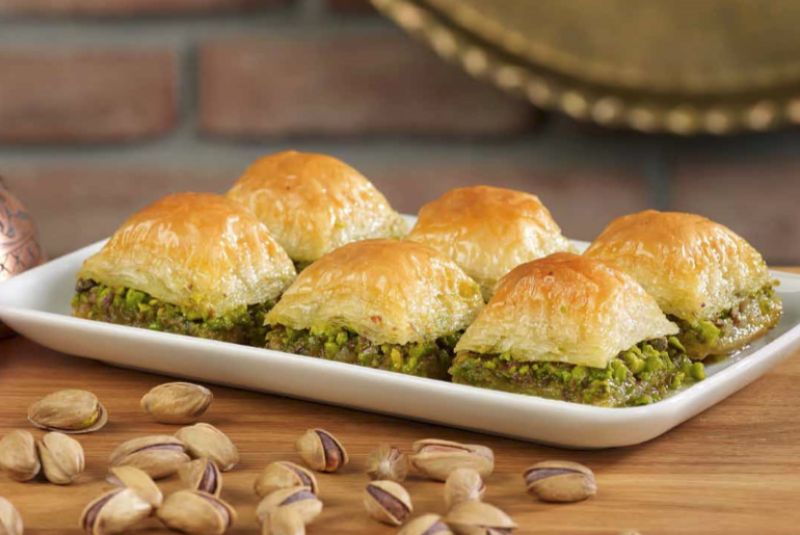
No exploration of Turkish sweets is complete without the mention of Baklava, an iconic and decadent pastry that has achieved global acclaim. Layers of thin phyllo dough, generously brushed with butter and layered with chopped nuts, are baked to golden perfection and drenched in sweet syrup. The result is a symphony of textures and flavors that defines the artistry behind one of the best Turkish dishes.
Turkish Delight (Lokum)
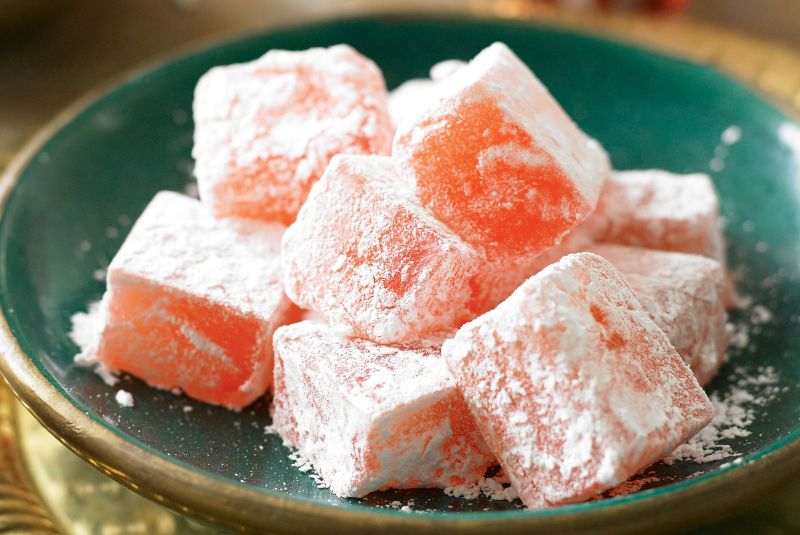
Delighting palates for centuries, Turkish Delight, or Lokum, is a sweet confection that comes in an array of flavors and colors. Made from sugar, starch, and a variety of ingredients such as nuts or spices, Lokum boasts a chewy and fragrant texture. Often served with a dusting of powdered sugar or desiccated coconut, this delightful treat is a beloved symbol of Turkish hospitality and a testament to the country's sweet legacy.
Künefe
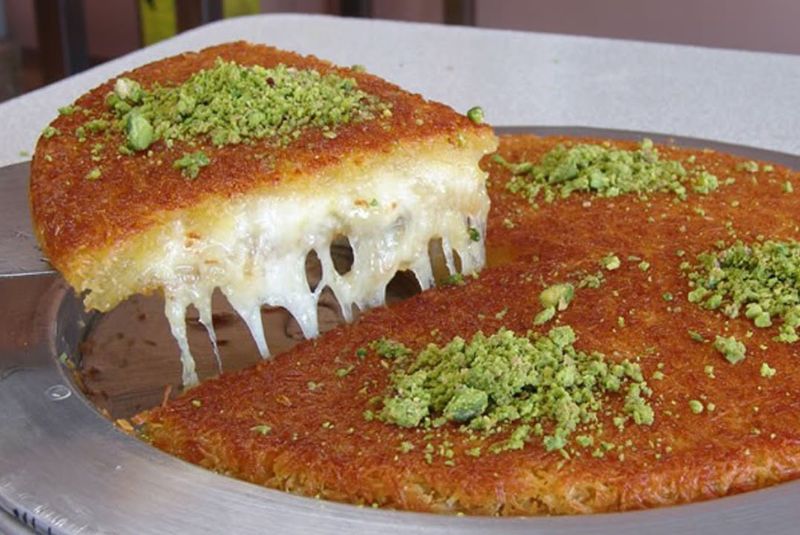
Hailing from the southeastern city of Gaziantep, Künefe is a sweet marvel that combines thin layers of shredded phyllo dough with a luscious filling of cheese or sweetened semolina. Baked to golden perfection and drizzled with rose or orange blossom water syrup, Künefe is a sensory delight that showcases the intricate balance of textures and flavors in the best Turkish dishes.
Importance of Sweets in Turkish Hospitality
Sweets hold a special place in Turkish hospitality, embodying a tradition deeply rooted in warmth and generosity. Offering sweets to guests is a gesture of welcome and a reflection of the host's desire to create a memorable and enjoyable experience. Whether it's a plate of Baklava served with a cup of Turkish coffee or a box of Lokum shared during festive occasions, sweets become a conduit for connection and shared joy.
In Turkish culture, the act of presenting sweets goes beyond mere culinary exchange; it symbolizes the sweetness of human relationships and the desire to make guests feel cherished. The best Turkish dishes extend beyond the savory realm, inviting individuals to indulge in the pleasure of sweetness, fostering a sense of camaraderie and leaving a lasting impression of the rich tapestry that is Turkish cuisine.
Turkish Beverages
As we navigate the diverse landscape of top Turkish food, we inevitably find ourselves drawn to the delightful world of Turkish beverages—a realm where sipping and savoring play an integral role in the rich tapestry of social life and culinary experience.
Turkish Tea
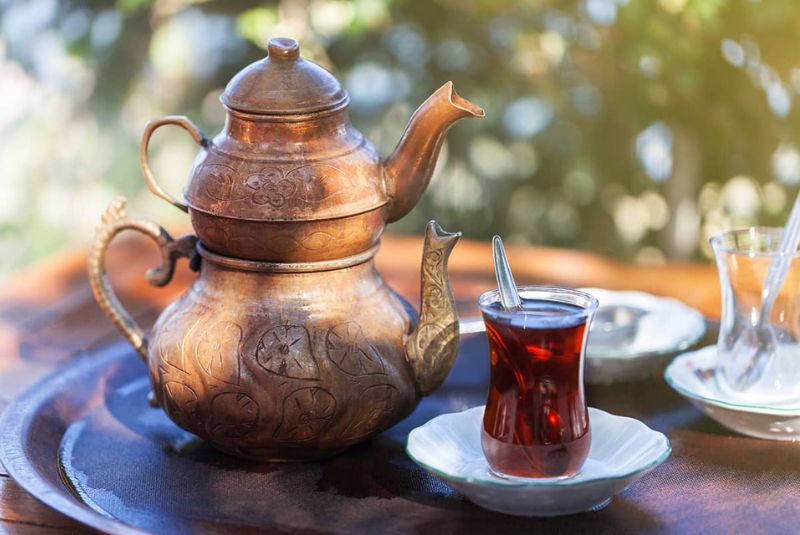
At the heart of Turkish social rituals, Turkish tea holds a place of honor. Served in delicate tulip-shaped glasses, this strong, black tea is a ubiquitous presence in homes, cafes, and gatherings. Its preparation and consumption transcend the act of drinking, evolving into a cherished custom that fosters conversation and connection, making Turkish tea a symbol of warmth and hospitality.
Turkish Coffee

Elevating the coffee experience to an art form, Turkish coffee is a finely ground, unfiltered coffee brewed with water and sugar (optional). The result is a rich, thick elixir that is served in small cups, often accompanied by a piece of Lokum (Turkish Delight). Beyond its bold flavor, the preparation and sharing of Turkish coffee become a ceremonial tradition, emphasizing the significance of coffee in Turkish social bonding.
Ayran (Yogurt-based Drink)
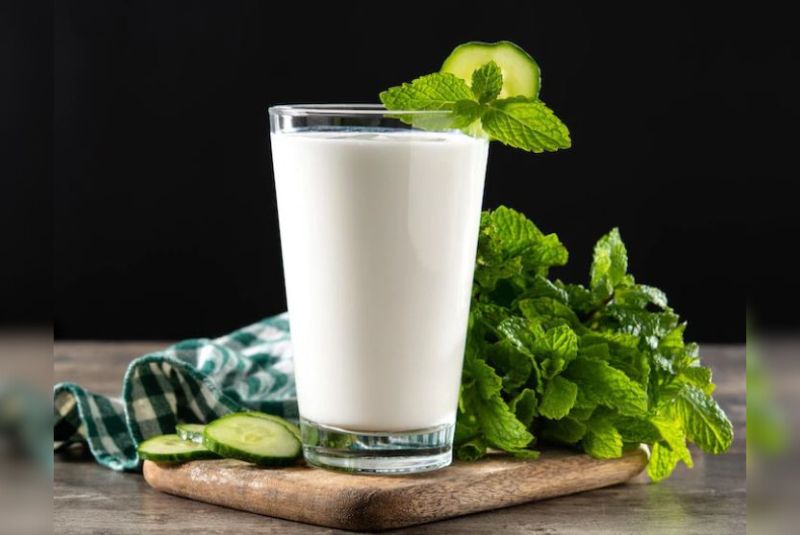
A refreshing antidote to the warmth of a Turkish afternoon, Ayran is a yogurt-based drink mixed with water and a pinch of salt. This effervescent beverage complements the richness of top Turkish food, serving as a palate cleanser and offering a cool respite. Ayran is not merely a drink; it is a culinary companion, enjoyed with meals or as a standalone refreshment on a hot day.
Raki (Anise-flavored Alcoholic Drink)
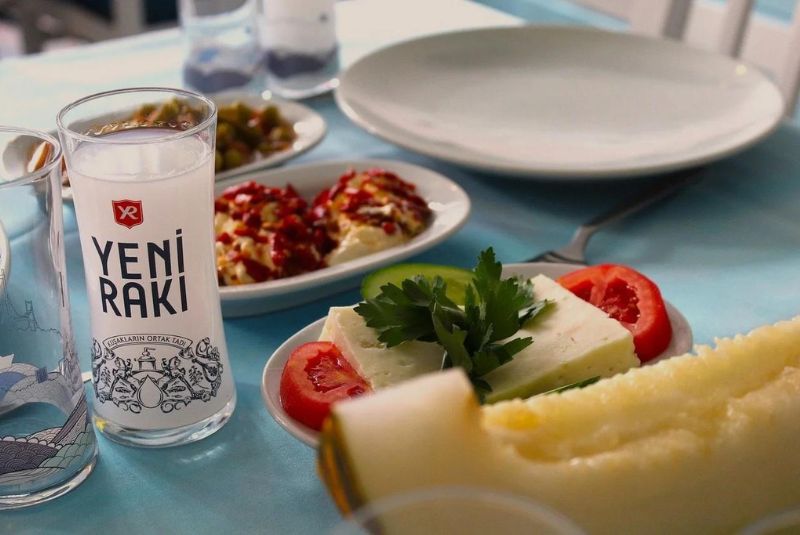
Earning its place as the national drink of Turkey, Raki holds a special significance in Turkish culture. This anise-flavored spirit is typically enjoyed during leisurely meals, especially in the company of friends and family. As glasses clink and conversations flow, Raki becomes more than a beverage—it becomes a conduit for shared moments and celebrations, further enhancing the convivial nature of Turkish social gatherings.
Role of Beverages in Turkish Social Gatherings
In the vibrant tapestry of Turkish social life, beverages serve as catalysts for connection and camaraderie. Whether it's the communal act of sharing a pot of Turkish tea, the intimate ritual of brewing and enjoying Turkish coffee, or the conviviality surrounding glasses of Raki, beverages play a central role in the fabric of Turkish social gatherings.
Turkish Street Food
In the bustling streets and vibrant markets of Turkey, the tantalizing aromas of street food beckon, offering a taste of the best Turkish food in a dynamic and casual setting. From stuffed baked potatoes to savory wraps, street food in Turkey is a culinary adventure that captures the spirit of local flavors and the energy of the bustling streets.
Kumpir (Stuffed Baked Potatoes)
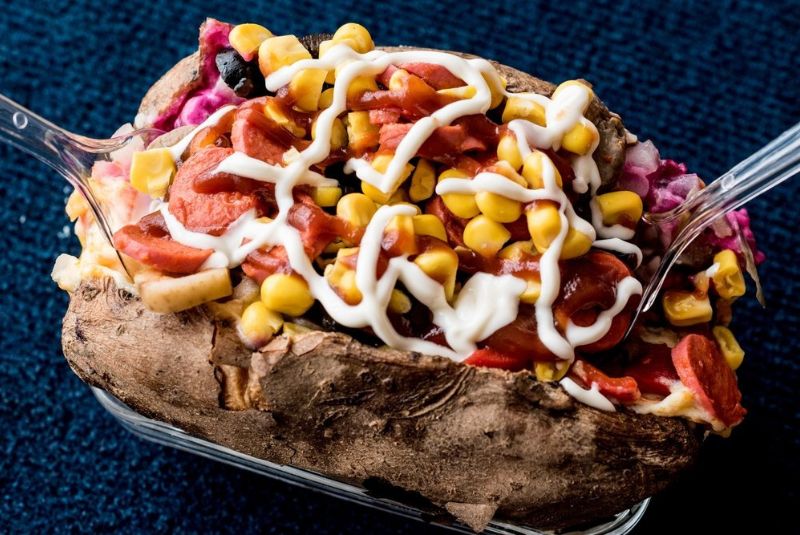
As the sun sets and the streets come alive, Kumpir stands as a beacon of street food excellence. These oversized baked potatoes become canvases for a plethora of toppings, from creamy cheese and butter to a medley of vegetables and meats. A Kumpir is not just a snack; it's a hearty, customizable meal that showcases the creativity and diversity inherent in the best Turkish food.
Midye Dolma (Stuffed Mussels)
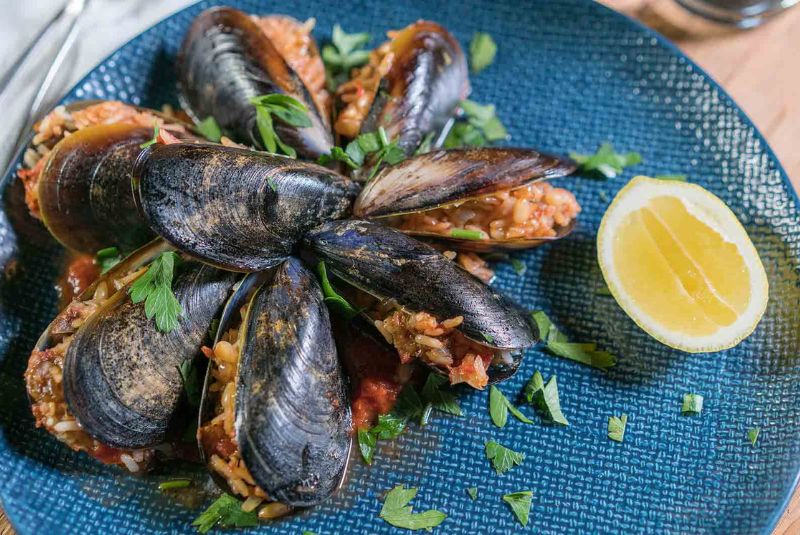
The enticing aroma of freshly cooked mussels draws food enthusiasts to street-side vendors offering Midye Dolma. These stuffed mussels are filled with a flavorful mixture of seasoned rice, pine nuts, and currants, creating a bite-sized delight that encapsulates the essence of Turkish coastal cuisine. Served with a squeeze of lemon, Midye Dolma exemplifies the seafood treasures found in the best Turkish food.
Tantuni (Turkish Wrap)
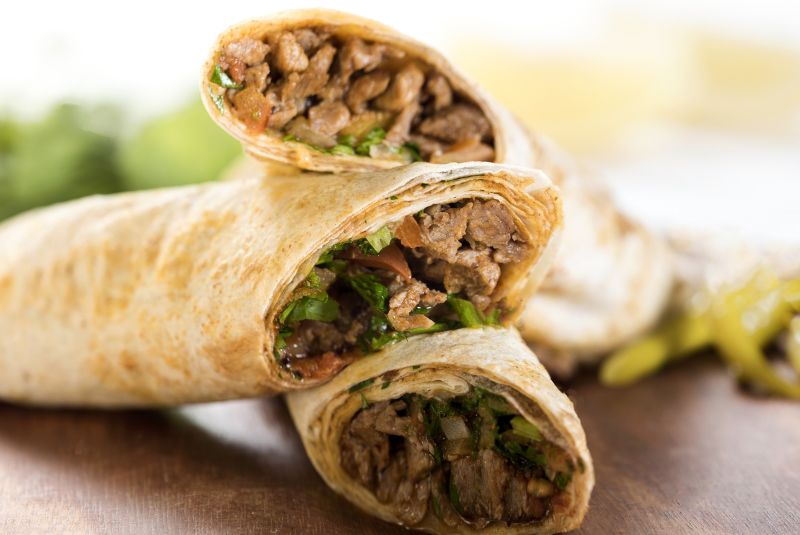
As the day unfolds, the sizzle of grills and the aroma of spiced meat announce the presence of Tantuni, a Turkish wrap that has gained fame for its bold flavors. A blend of thinly sliced beef or chicken, seasoned with spices, is wrapped in lavash bread along with fresh vegetables. The result is a handheld masterpiece that embodies the street food culture in Turkey—a harmonious fusion of flavors that captivates locals and visitors alike.
Vibrant Street Food Culture in Turkey
Turkish street food is more than a quick bite; it's a sensory journey that reflects the dynamic and diverse culinary landscape of the country. From the lively streets of Istanbul to the coastal towns along the Aegean, street vendors showcase the versatility of Turkish cuisine, turning ordinary ingredients into extraordinary culinary creations.
Renowned Turkish Restaurants
Nusr-Et Steakhouse (Various Locations)

Internationally acclaimed, Nusr-Et Steakhouse, with its founder "Salt Bae" gaining global fame, offers a luxurious take on Turkish meat dishes. From perfectly grilled steaks to traditional kebabs, this restaurant is a testament to the elevated dining experiences within the spectrum of the best Turkish food.
Mikla (Istanbul)

Perched atop the Marmara Pera Hotel, Mikla is a gastronomic haven known for its fusion of Turkish and Scandinavian flavors. With breathtaking views of Istanbul, it offers a fine dining experience that highlights the diversity and innovation within Turkish culinary traditions.
Ciya Sofrası (Istanbul)
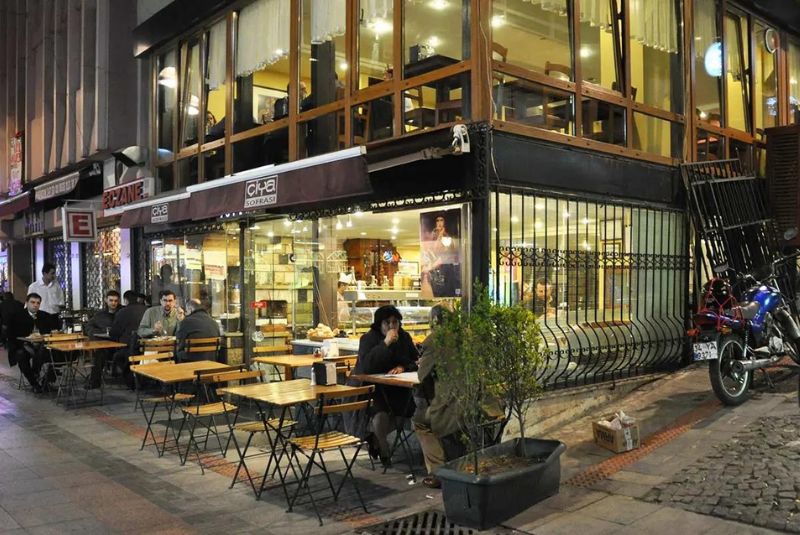
A beloved institution in Istanbul, Ciya Sofrası is a culinary mosaic, showcasing the rich tapestry of regional Turkish cuisine. With a commitment to using local, seasonal ingredients, Ciya Sofrası provides an authentic and delightful journey through some of the best Turkish dishes.
Local Eateries
Antiochia Concept (Antakya)

Nestled in the historic city of Antakya, Antiochia Concept is a local gem celebrated for its traditional Hatay cuisine. From mezes bursting with flavor to kebabs that melt in the mouth, this eatery embodies the essence of authentic Turkish food experiences.
Karadeniz Pidecisi (Trabzon)

For an authentic taste of Turkish pide (flatbread), Karadeniz Pidecisi in Trabzon is a must-visit. The bustling atmosphere and the aroma of freshly baked pide create an immersive experience, making it a local favorite for those seeking the best Turkish food in its purest form.
Cunda Balık Evi (Ayvalık)
Situated in the charming town of Ayvalık, Cunda Balık Evi offers a seafood-centric dining experience. With a menu inspired by Aegean flavors and fresh catches from the surrounding waters, this eatery exemplifies the coastal treasures that contribute to the best Turkish dishes.
Last Words
In the rich tapestry of Turkish cuisine, every bite tells a story of tradition, diversity, and hospitality. From vibrant mezes to sizzling street food, each flavor beckons exploration. The best Turkish food isn't confined to grand restaurants; it's found in hidden markets and welcoming homes. As you embark on your culinary adventure, savor the diverse and delicious world of Turkish cuisine. Let the flavors transport you, and may every bite be a journey into the heart and soul of the best Turkish food.
Share your story!
Comment below and let us know about your Experience.
Your story inspires others!
Comment
Leave a Comment